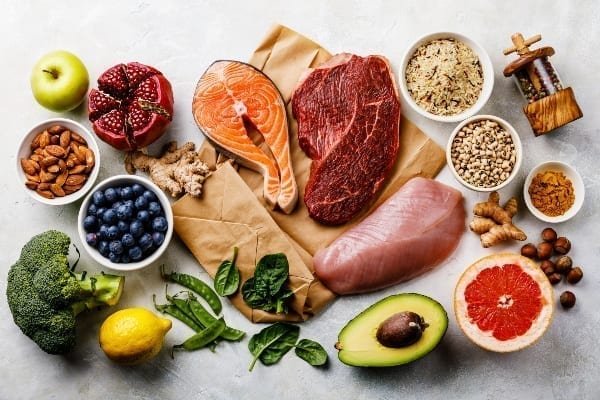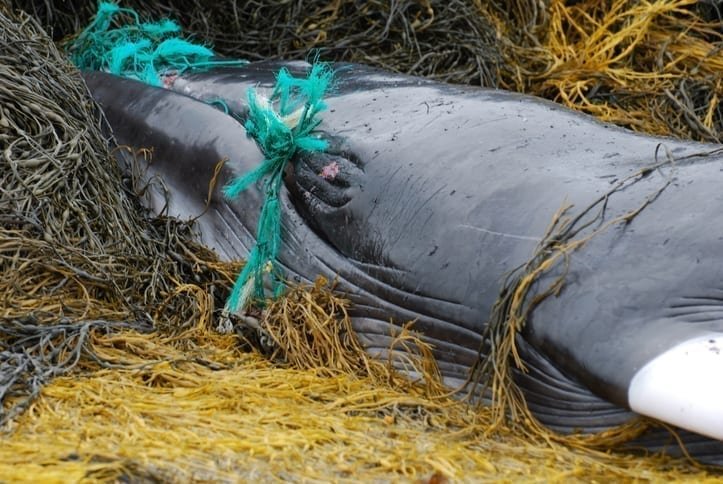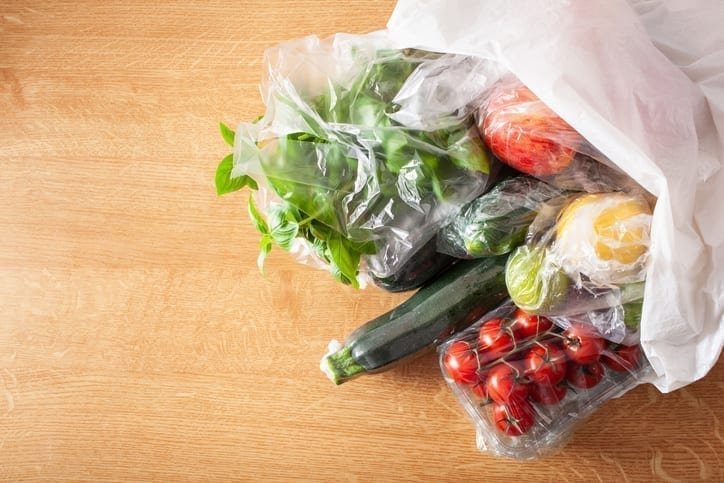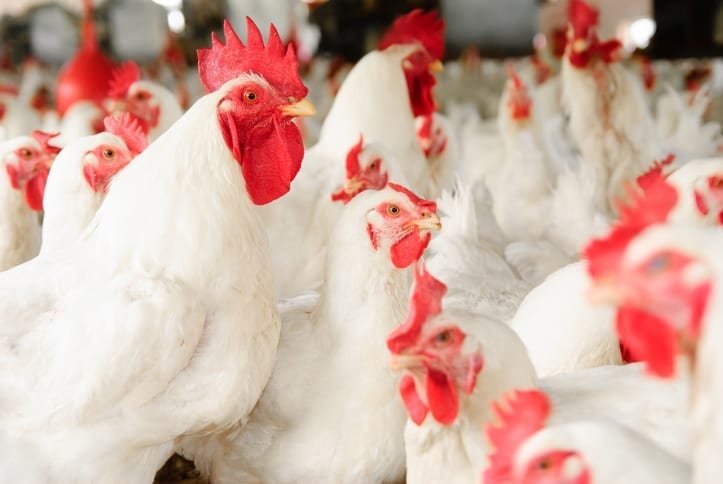UK shoppers are unknowingly consuming 2.5 times more fish than they think, according to a new report that ranks the top 10 UK supermarkets according to the sustainability of the farmed seafood that they sell.
Caught Out, by the Changing Markets Foundation and Feedback, reveals that UK supermarkets are failing in their responsibility to protect our oceans, as seven out of the 10 supermarkets received less than 30% on the fish feed sustainability scorecard.
ALDI finished bottom of the list on 12% and Waitrose received just 22%. Only Tesco achieved a score over 50%.
Hidden fish
The report also found that UK shoppers indirectly and unknowingly consumed 177,000 tonnes of wild fish in 2019 by eating the top six farmed fish species including salmon and prawns, which are fed on fishmeal and fish oil (FMFO).
That equates to a ‘hidden’ 172g of wild fish consumed for every 100g of farmed fish eaten – almost all of which could have been eaten directly by people.
These farmed seafood products are contributing to the collapse of wild fish stocks and taking a key source of protein away from some of the world’s poorest communities.
That’s due to the aquaculture industry’s reliance on FMFO for fish feed, as revealed by Changing Markets in Fishing For Catastrophe.
That report found links between illegal and unsustainable fishing practices in India, Vietnam and The Gambia and farmed fish and seafood products sold by UK retailers.
Demand for sustainable fish
With most UK seafood purchased in supermarkets and 70% of shoppers keen to buy sustainable fish, retailers have a duty to lead the way on ocean stewardship. However, Caught Out has found that UK supermarkets are failing in this responsibility.
‘Supermarkets have enormous power over supplier standards and the choices their customers make, and seafood selection is no different.
‘By prominently marketing farmed seafood like salmon and prawns which are fed on wild fish and crustaceans, retailers are promoting an extractive industry which is threatening the long-term health of our oceans.
‘Behind the blue planet rhetoric, supermarkets need to get real about the impact of aquaculture, and commit to targets to end the use of wild fish in aquaculture feed.’
JESSICA SINCLAIR TAYLOR
Feedback
ALDI gets lowest score
In 2018, ALDI got the top spot in the Marine Stewardship Council (MSC) League Table for having the highest percentage of MSC certified wild-caught products, however the discounter received the lowest score in the report, at just 12%.
That was due to the supermarket’s failure to label information on the origin of the farmed seafood sold, the failure to introduce binding requirements on fish feed and the lack of a senior member of staff responsible for seafood or aquaculture.
The company also failed to respond to the questionnaire for the report – a lack of engagement reflected in its wider failure to recognise the importance of ending farmed fish reliance on wild-caught marine ingredients, and a lack of serious corporate engagement with research on alternative feed ingredients.
‘UK supermarkets make bold claims about the sustainability of the farmed fish that they sell, however, our research has found that these claims are not backed up by the reality of how their farmed fish is produced.
‘Our investigations have shown that the UK’s leading retailers are linked to highly destructive fishing practices in Africa and Southeast Asia which are devastating marine ecosystems and depriving people of food.
‘UK shoppers will be shocked to learn that for every 100g of farmed fish they are eating, they are consuming more than 172g of wild fish as well, which is taking food away from vulnerable communities and causing disastrous environmental impacts.
‘By turning a blind eye to this, retailers are both failing in their responsibility to preserve the oceans and misleading their customers by hiding the true impact of their products.’
NATASHA HURLEY
Changing Markets
A surprise result for Waitrose
One of the most surprising findings of the report was the poor performance of the high-end supermarket Waitrose, which received just 22% on the scorecard.
Like other retailers, Waitrose is heavily reliant on certification as a proxy for sustainable seafood supply chains. It also demonstrated limited transparency overall, failing to disclose information on any aspect of its farmed fish supply chains and claiming that the information requested was ‘commercially sensitive’. It also lost points as its farmed-fish feed policy lacked substance.
‘Waitrose trailed other supermarkets, failing to live up to its glossy marketing about the sustainability of the seafood it sells.
‘We were particularly disappointed that Waitrose didn’t clearly label farmed seafood products on their shelves, so it is impossible for shoppers to know what they’re buying and the impact it might have.
‘Waitrose must remedy this and adopt strong policies to end its reliance on wild-caught fish to feed farmed seafood including a target to eliminate wild-caught fish in its supply chain no later than 2025.’
JESSICA SINCLAIR TAYLOR
Feedback
Oceans in crisis
In 2015, 93% of the world’s marine fish stocks were either fished to their limit or overfished.
The farmed fish industry claims to be a sustainable solution to this crisis, however research has shown that this is far from the case.
A fifth of global fish landings are being used to produce FMFO to supply industrial livestock and aquaculture, and demand is set to grow as the aquaculture industry expands.
Lack of transparency
Customers’ decisions about which products they buy are heavily influenced by the marketing, labelling and options provided by retailers in their buying choices.
However, at the store level, there was a lack of accessible information for customers regarding methods of production and provenance. In many cases it was not easy to tell if the fish was farmed but wild-caught fish was clearly labelled as such.
In every store that the investigations team visited, the variety of (mainly farmed) salmon products on offer far outweighed the variety of other seafood products and they were almost always prominently placed at eye level on shelves.
Stocking and marketing sustainable alternatives to farmed seafood fed on wild marine ingredients is a key step towards shaping consumer tastes in the right direction. While some retailers stocked a broader range of seafood than others, none provided a range of alternatives to rival the dominance of farmed products such as salmon and prawns.
 Play Video about This Rock Might Just Save The World
Play Video about This Rock Might Just Save The World Play Video about Play 2 hours of rock
Play Video about Play 2 hours of rock Play Video about Play 2 hours of brook
Play Video about Play 2 hours of brook Play Video about Play 2 hours of sheep
Play Video about Play 2 hours of sheep















































